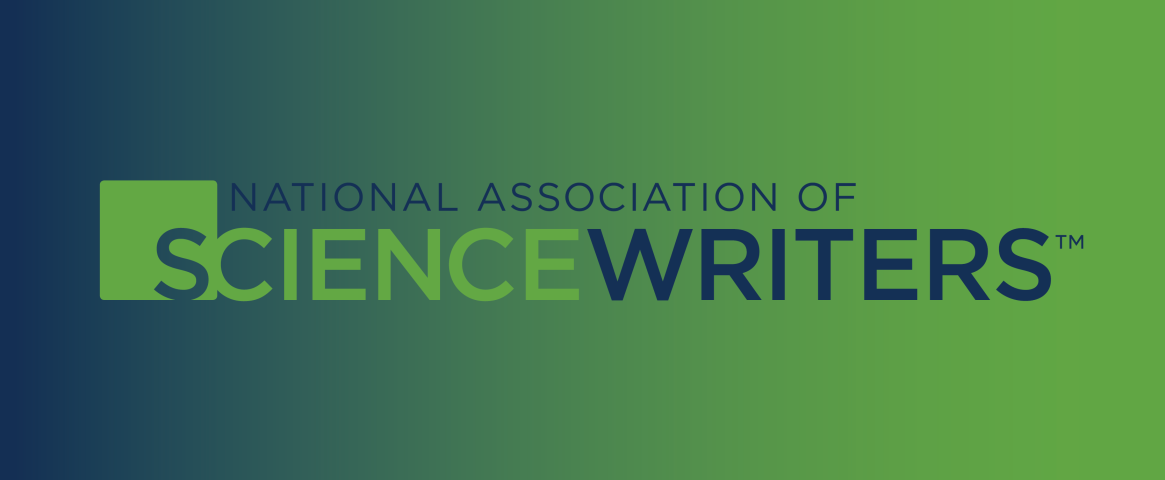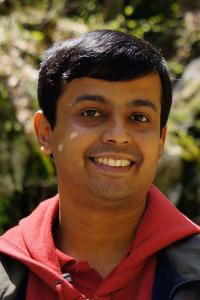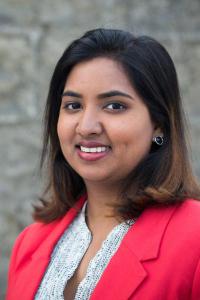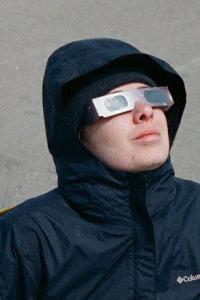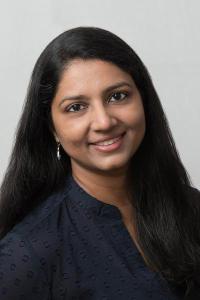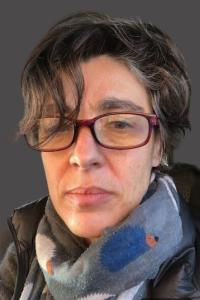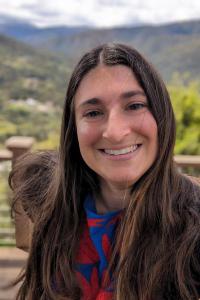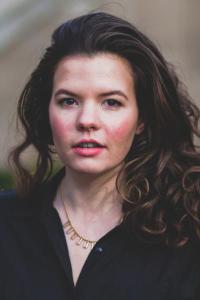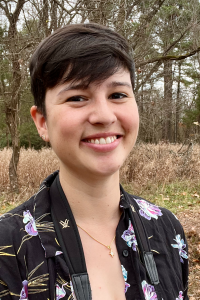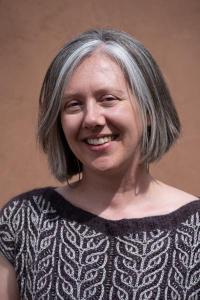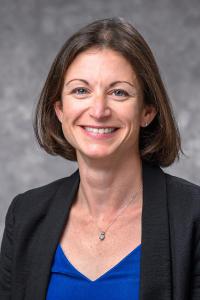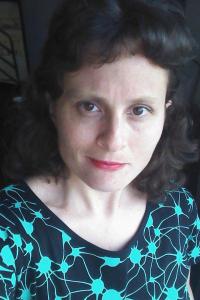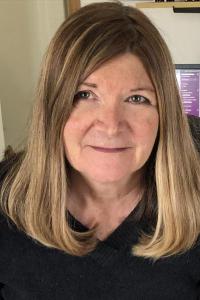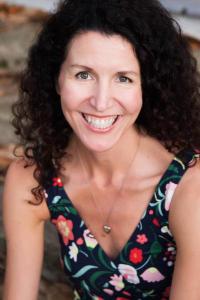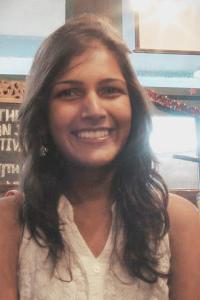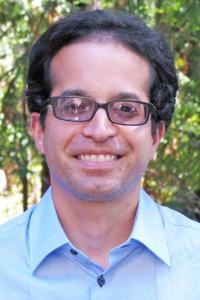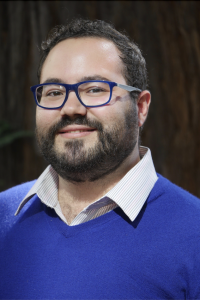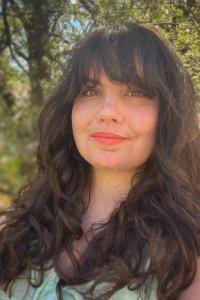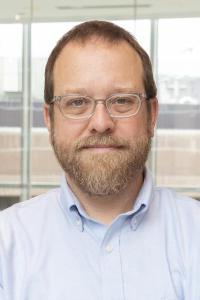Later this year, elections will be held to select our next volunteers for the National Association of Science Writers Board of Directors, serving the 2024-2026 term.
This election will confirm four officers and fill the board’s 11 at-large seats out of the field of 14 at-large candidates. The elected board will serve from October 2024 to October 2026. Statements for each candidate are posted below, and we will host an online meet-the-candidates session later this summer.
Voting is open to all current NASW members with Professional membership; voting is not open to those with Affiliate or Student membership. Voters will receive a personalized email in August 2024 with instructions and a link to the online voting proxy.
NASW thanks the 2024 Nominating Committee for their volunteer service in managing the candidate nomination process: Cassandra Willyard (chair and outgoing president), Ashley Smart, Emily Sohn, Pakinam Amer, Siri Carpenter (former president), and Sujata Gupta.
Meet your 2024-2026 NASW Board candidates:
- Sandeep Ravindran FOR PRESIDENT
- Shraddha Chakradhar FOR VICE PRESIDENT
- Kat Eschner FOR SECRETARY
- Jyoti Madhusoodanan FOR TREASURER
- Alla Katsnelson FOR BOARD MEMBER-AT-LARGE
- Amanda Heidt FOR BOARD MEMBER-AT-LARGE
- Anastasia Gorelova FOR BOARD MEMBER-AT-LARGE
- Ariana Remmel FOR BOARD MEMBER-AT-LARGE
- Katie Mast FOR BOARD MEMBER-AT-LARGE
- Kelly Tyrrell FOR BOARD MEMBER-AT-LARGE
- Leah Shaffer FOR BOARD MEMBER-AT-LARGE
- Marilynn Marchione FOR BOARD MEMBER-AT-LARGE
- Marla Broadfoot FOR BOARD MEMBER-AT-LARGE
- Priyanka Runwal FOR BOARD MEMBER-AT-LARGE
- Ramin Skibba FOR BOARD MEMBER-AT-LARGE
- Rodrigo Pérez Ortega FOR BOARD MEMBER-AT-LARGE
- Shel Evergreen FOR BOARD MEMBER-AT-LARGE
- Tom Ulrich- Withdrawn FOR BOARD MEMBER-AT-LARGE
Candidate for president
Sandeep RavindranFreelance
he/him
I’m running for NASW president to serve and support the science writing community. I have had the pleasure of serving as NASW vice president for the past two years and have been a member of the board for three terms. I have seen the many challenges that our field has faced during the past few years, but also the many ways that NASW has helped the science writing community. Among other things, I have worked with the board and NASW committees to provide new programs and opportunities for our members to develop their skills and networks and to provide more mentorship and support to those new to our field. I am constantly amazed at the tireless efforts of NASW committees and volunteers, and I look forward to doing more to engage with and support them. I am also interested in doing more to increase the diversity of backgrounds and experiences in NASW and to give voice to underrepresented perspectives.
NASW has played a huge role in my journey into science writing, and I would welcome the opportunity to continue contributing to this organization. As chair of the Programs Committee, I have led the committee in reviewing and selecting sessions for the 2023 and 2024 ScienceWriters conferences. Before that, I was NASW treasurer and worked with the Finance Committee to balance the organization’s budget while prioritizing events that benefit our membership, including fellowships, grants and conferences. We offered hardship rates for membership renewals and a discounted introductory rate for new members, as well as discounted dues for members based in low- and middle-income countries. I’ve previously helped organize the Power Pitch and Pitch Fest events at several NASW meetings, and have worked with the Board to increase NASW member engagement, improve member benefits and support diversity and inclusion within NASW.
I’ve been a freelancer for more than a decade, and have written for a variety of publications including The New York Times, TIME, Smithsonian, National Geographic, Nature, and WIRED. I have also served as a Program Manager for The Open Notebook‘s Sharon Dunwoody Science Journalism Mentoring Program, as well as a lecturer in the Johns Hopkins M.A. in Science Writing program. Before becoming a science writer, I completed a microbiology and immunology Ph.D. at Stanford and studied science communication at UC Santa Cruz. NASW and its community have been a huge part of my science writing career, and I would be honored to lead this organization.
Candidate for vice president
Shraddha ChakradharDeputy News Editor, Diversity, Science
she/her
I am running for vice president of NASW and my third term as a board member to continue serving our professional community. I've been involved with NASW since 2013, first as a student journalist, then as a co-chair of the Diversity Committee for three years, and a board member since 2020. Since 2022, I have also been NASW treasurer and I have — along with the diligent members of the Finance Committee and our executive director — worked to ensure a balanced budget and financial support for the many ongoing programs that really make NASW the enriching community that it is. The Finance Committee has also been setting goals to ensure the long-term fiscal health of our organization and will work over the next few months to achieve many of them, including helping NASW put on its first self-hosted conference.
As a new member to the Programs Committee, I will bring to it insight and experience from my time on other NASW committees. Finding ways to engage with our community regularly outside the yearly meeting will be a priority in this new role, as will ensuring that the annual meeting serves our most vulnerable members and that the conference program is reflective of NASW's commitment to diversity, equity and inclusion. I would like to see the event expand its reach to the steadily-growing international science writing community, for instance, and would also like to scale up NASW's programmatic offerings for people in our field experiencing hardships including layoffs and lack of support for professional development. Media workers continue to see unique challenges, and I strongly believe that NASW ought to continue its role in fostering a supportive community — in the most inclusive and impactful ways possible.
In my non-NASW life, I work as a deputy news editor at Science, helping to shape the magazine's coverage of issues that sit at the intersection of science and diversity issues. I also run the magazine's internship program for people from historically marginalized communities. I've previously worked at Nieman Journalism Lab, STAT, and Nature Medicine.
Candidate for secretary
Kat EschnerAffordability Reporter, TVO
all pronouns
From my first conference in San Francisco, I’ve had a number of opportunities to appreciate how NASW’s collegiality and commitment to professionalism benefit science writing. I am seeking re-election as a board member to continue giving back to this important community.
Clear and responsible science communication is more important than ever — as is, I believe, NASW's ongoing commitment to human rights. During my term I worked on board statements, scholarship review committees, and a number of other initiatives. I believe my perspective as a member based in Canada enhances my ability to contribute to important board discussions by adding a different perspective.
In my second term, I aspire to keep contributing to these important initiatives while also stepping into the role of board secretary.
Candidate for treasurer
Jyoti MadhusoodananFreelance
she/her
The NASW community has been vital to my career since I began working as a science writer more than ten years ago, offering stability, connection, and much joy. I serve on the board to pay this support forward, especially to those new to the field.
I currently serve as the NASW Secretary and am running for my third term on the Board. If elected treasurer, I will work to maintain NASW’s fiscal standing and support various programs for members, particularly programming that boosts diversity and inclusion within our community. In the past, I co-chaired NASW’s Awards committee, where the committee worked together to significantly revise the awards process to reflect our organizational commitment to diversity, equity, and inclusion. In 2020, I was honored to be the co-recipient of the Diane McGurgan Service Award for work on the awards committee and other volunteer work. I serve on NASW’s Standing Ethics committee and have volunteered to mentor students and early-career writers for several years. I’ve worked in a variety of roles in science communication.
I began my career in corporate communications for a life sciences startup and then worked as a press officer for the scientific journal PLOS ONE. I graduated from the UC Santa Cruz Science Communication program in 2014, and now freelance for Nature, Undark, Discover, Chemical & Engineering News, and many other outlets from my home in Portland, Ore.
Candidates for board members-at-large
Alla KatsnelsonFreelance
she/her
NASW has been my professional home for more than 15 years. At my first NASW meeting, I was mentored by a senior science writer who I still keep in touch with today. Throughout the years I have sought to contribute to the organization through committees, working groups, and mentoring. At the end of my five-year tenure as co-chair of the Awards Committee in 2020, I was honored to be the co-recipient of the Diane McGurgan Service Award. These years of engagement have really brought home to me how vital an organization NASW is for building and supporting our science writing community.
For the majority of my career I have been an independent science writer and editor based in Western Massachusetts. I have reported stories about the life sciences for publications including Nature, Chemical & Engineering News, The New York Times, and Men’s Health, and I have written and edited various types of content for institutions including the Kavli Foundation, the New York Academy of Sciences, and multiple universities. In so many ways, the world of science writing is in flux. Increasingly, whether we are staff or freelance, many of us find ourselves weaving together a career that combines different types of work. If elected, I would love to use my position on NASW’s board to help our community navigate the complexities raised by this newly emerging landscape.
Amanda Heidt
Freelance
she/her
I recently read back through my original candidate statement from 2022, and I laughed at how differently things have turned out from what I anticipated. Two years ago, I was starting to feel as though I had my professional legs under me, and yet the year ended with a surprise layoff from my staff job. Instead, I entered 2023 committed to building a viable freelance career, a process I've since seen play out dozens of times among friends and colleagues as we collectively navigate a broader reckoning with this industry that we love.
Through all of that tumult, serving on the NASW board has been a consistent source of community and hope. I've been able to take weighty, painful feelings and redirect them in purposeful ways. Amid the many layoffs and closures in the field, we came together to host a series of professional roundtables on career pivoting, including a session on mental health and wellness that I co-planned. At the same time, we've been keeping tabs on important developments in science writing, including the arrival of artificial intelligence (A.I.). For the SciWri23 meeting in Boulder, I co-developed a virtual plenary and invited speakers to discuss how A.I. might help or hinder science and what writers need to know to use and cover A.I. ethically. As a board, we've published our own thoughts on this and many other pressing topics impacting science writers across the U.S. And in the end, I was able to build that freelance business, publishing widely in Science, Nature, NPR, Scientific American, and Science News, among other outlets.
I'm running for re-election because I still have work to do and change I want to see, and no organization is as well-placed as NASW to see that through. In my last statement, I noted that because I have written and edited for both print and digital publications, and because I have worked as a staff writer, PIO, and freelancer, I bring a well-rounded perspective to the table. That is only more true today, with the added benefit of two more years of experience! It would be an honor to continue serving you, our members.
Anastasia Gorelova
Media Relations Manager, University of Pittsburgh Medical Center
she/her
As a PIO, I rely on strong relationships with freelance and staff journalists to ensure that the public stays informed about issues impacting global health and keeps aware of innovations in medical research that are shaping the future of healthcare. Yet, over the past several years it has become increasingly clear that challenges facing the media industry put the future of those relationships at peril and, as a result, undermine one of the foundational pillars of our democracy.
I am a PIO at the University of Pittsburgh Medical Center and University of Pittsburgh’s Schools of the Health Sciences. For the past three years I have been running an informal science writing mentorship program for students interested in science journalism and public relations, as well as participating in panel discussions and workshops designed to teach students about fulfilling careers outside of academia. Since its conception, I’ve been a dedicated organizing member of Appalachian Science Communicators, or AppSciComm, a group of science communication professionals providing support and camaraderie to other writers in an often overlooked region of the United States. In late 2023 I took over the role of the group’s president and am currently leading the effort to expand our group’s membership outside of the core region of Western Pennsylvania and Ohio, as well as offer regularly scheduled professional events and get-togethers.
In my second term as a board member, I hope to continue to shape NASW’s response to ongoing and emerging challenges facing our profession and represent PIO voices in key decisions concerning the organization’s future.
Ariana Remmel
Freelance
they/them/theirs
I am running for a position on the board so that I can directly contribute to NASW efforts that keep careers in science writing welcoming, inclusive, and sustainable.
I am a science journalist and audio producer based in Arkansas where I cover chemistry, materials science, and conservation ecology. I have previously worked as an intern and staff writer, and now run an independent writing business covering a mix of national and local news for outlets such as Science, Nature, Audubon, and BirdNote.
I’ve been an active NASW member since 2020 when I graduated from the UC Santa Cruz Science Communication Program and was awarded an NASW Diversity Summer Fellowship to launch my career. It was an uncertain time to transition from my previous life as a chemist to that of a full-time writer, but NASW resources helped me at each step along the way. I currently volunteer as an awards screener and mentor for NASW programs, and have organized informal networking events at past ScienceWriters meetings. Now I am ready to step up my contribution.
As a member of the board, I look forward to bolstering ongoing projects that provide mentorship, grant support, and skills development resources to members at every stage of their career. I am especially interested in crafting community-centered strategies to address the leaky pipeline of science journalists at risk of leaving the field entirely.
Katie Mast
Publications Manager, Santa Fe Institute
she/her
I spent the first ten years out of college dabbling in a variety of interesting jobs (outdoor educator, assistant to a criminal defense attorney, city government website editor) but always holding a gnawing desire to combine my degrees in environmental studies and writing. I just had no idea how to go about it.
Since learning about the field of science writing more than ten years ago, I've come to rely on NASW as a critical anchor in my professional life. It has offered foundational material as I moved from editorial intern at High Country News to freelancer learning to balance magazine writing, nonprofit contracts, and fact-checking assignments. Since 2022, it’s where I’ve looked for resources to navigate my new role in communications at the Santa Fe Institute. Perhaps most important is the network of friends, mentors, and collaborators I've met through NASW in-person meetings, online programs, and volunteering experiences.
I began volunteering with NASW in 2018 as a member of the Conflict of Interest Working Group. In 2019, after receiving a Peggy Girshman Idea Grant with Allison Mills to build a workshop on improv tools for science writers, I co-led a ScienceWriters session with Allison and Kasha Patel. And since 2020, invigorated by participating in the annual conference, I’ve been a member of the Programs Committee.
I’m running for a seat on the board because NASW has been such an important professional community for me. I’m eager to give back to, and continue learning from, NASW in new ways. I hope to contribute to NASW’s ongoing mentorship of new science writers and resource-building for all the various roles under the science-writing umbrella. As our world and profession face uncertainty and rapid changes, I’m committed to this community with its dedication to accuracy and excellence.
Kelly Tyrrell
Assistant Vice Chancellor for Content Strategy, University of Wisconsin-Madison
she/her
In October 2013, I was a brand new freelancer, freshly laid off from the staff newspaper job that I had loved. I had secured an NASW travel grant to attend that year’s meeting in Gainesville and when I arrived, I quickly found within the organization an abundance of community and support (and a Pitch Slam that made my palms sweaty).
For me, NASW has always been an organization where science writers from all backgrounds are encouraged to find belonging, to grow and to give back. I have been grateful to be part of it, attending annual meetings, learning more about my own craft, volunteering on committees (PIO and Diversity), helping steer the organization toward more equitable and inclusion-oriented stances, welcoming and being welcomed by others, earning recognition for my work, finding friends and so much more.
I joined the NASW board in 2022 and am running again with the hope that I can continue serving the organization. In the past two years, I’ve been fortunate to play a role in continuing our Diversity Summer Fellowships, providing statements of support and community on a number of critical issues facing our professions — from artificial intelligence to unionization — and in myriad ways helping the organization fulfill its core mission. I hope to continue advancing support for a more diverse and inclusive profession and in service to science writers in all the roles they find themselves in throughout their careers.
Leah Shaffer
Senior News Director, Science, Washington University in St. Louis
she/her
The National Association of Science Writers is an anchor for journalists and science communicators in an increasingly turbulent media environment. The group has helped guide me during my career as a freelance science writer and I’m running for a position on the board to ensure the next generation of science journalists have access to these crucial resources and more.
I accepted a position as a public information officer for Washington University engineering this year, which frees up time to give back to the science writer community. I’m well-suited for a board position because I am bridging both sides of the NASW membership: I have served as a journalist for the bulk of my career and now work as a science communicator for a research institution. Either position, I am committed to transparency in sharing stories about science. I firmly believe the best stories about our world don’t shy from nuance but spur on more questions.
I’m from a rural area of Kansas, worked as a community journalist in Minnesota for a decade, watched the community journalism industry implode, and started writing about science. I now live in the St. Louis region with my husband, two children, two cats and three chickens. NASW has been a crucial reason why I successfully transitioned to a very different type of journalism, along with providing much-needed professional connections and social support.
I’m eager to tackle challenges including establishing online spaces for science communities/communicators. X is increasingly shedding the remnants of “science twitter” and as someone who found most of her story ideas from that space, I am interested in working with others on the NASW board to figure out how best to bring the scientists to the science writers.
Marilynn Marchione
Chief Medical Writer (Retired), The Associated Press
she/her
I’m seeking a third term on NASW’s board. I feel that continuity and my experience would be assets as the organization is about to embark on developing a strategic plan, charting a course that adapts to the new media landscape and rethinks relationships with other journalism groups and funders.
I’ve had a long career at several newspapers and The Associated Press, have worked extensively with academic and industry science writers, and have served on NASW’s Finance Committee for about five years. I’ve also volunteered as an awards judge for several journalism organizations and have helped vet grant and scholarship applications.
I retired in 2021 so I have time and energy to offer for betterment of our field.
Marla Broadfoot
Freelance and Contributing Editor, American Scientist
she/her
I’m running for a second term on the NASW board because I’m committed to helping to shape and support this vital organization. Since joining NASW in 2001, I’ve served on several committees, organized ScienceWriters workshops, and mentored early-career science writers. During my first term, I helped the board organize a new virtual events series in response to shifts in the journalism industry and personally moderated a session on mental health and self-care for journalists facing tough transitions. I served on a special committee tasked with formalizing the board’s approach to issuing statements on issues that impact science writing, such as violence against journalists and generative A.I. tools. I was also part of an interim NASW membership committee responsible for ensuring continuity in reviewing new membership applications as our organization continues to grow.
Prior to joining the NASW board, I served for more than five years as president of the Science Communicators of North Carolina (SCONC), expanding the regional group’s programming and partnerships and laying the groundwork for it to become a 501(c)(3) nonprofit. I co-founded the SciWriCongress, a network of over a dozen regional groups, which has met at the annual ScienceWriters meeting since 2018. Most recently, I brought these experiences and expertise together as a member of the ScienceWriters2024 Steering Committee, helping to bring our annual meeting to Raleigh. Please join us in North Carolina in November!
Before shifting to journalism, I earned a Ph.D. in genetics and molecular biology from the University of North Carolina at Chapel Hill. I’ve spent the last 17 years as a freelance science writer and editor based out of my home in Wendell, N.C. My work has appeared in Scientific American, Science, STAT, Smithsonian, Knowable, Discover, Nature News, and Science News, among others. I was a 2022-2023 Rosalynn Carter Mental Health Journalism Fellow. I also serve as a contributing editor at American Scientist magazine. The NASW community has sustained me throughout my career. I would love to continue to give back to the organization and would welcome the opportunity to serve another term.
Priyanka Runwal
Associate Editor, Chemical & Engineering News
she/her
I moved from India to the U.S. in 2018 to pursue a career in science journalism. After graduating from the UC Santa Cruz Science Communication program, I’ve worked as a freelancer and staff reporter. In this journey, NASW has provided me with a sense of community that I deeply cherish, and the organization has been integral to my professional development. It’s time for me to give back and help further NASW’s mission. I’m hence applying to serve as a board member this term.
I joined NASW as a student in 2019. Since then, I’ve worked with the organization’s Education Committee to mentor early-career science writers. In 2022, I also participated in NASW’s Mid-Career Mentoring Program, where I was a speaker in a session on expanding skillsets. I recently helped NASW’s Awards Committee by serving as a judge for the 2024 Science in Society Journalism Awards. Paying forward the advice and time my mentors gave me has been hugely satisfying, and I’ve learned a whole lot in turn.
If elected as a board member, I’m particularly keen to support a growing community of science writers from diverse backgrounds, cultures, and nationalities working for U.S. outlets. My lived experience as a South Asian journalist now based in New York has meant enduring difficult conversations regarding visas and immigration issues. I’m currently guiding several early-career, international NASW members facing similar hurdles as they seek employment and freelance work in an already tough market. Fostering a more inclusive science writing community is at the core of my mission.
A little about me: I’ve worked as a freelance environment and health journalist for The New York Times, Scientific American, and National Geographic. I’ve covered the COVID-19 pandemic and other health and medicine stories as National Geographic’s resident reporter. I now cover communities impacted by toxic pollutants for Chemical & Engineering News.
Ramin Skibba
Freelance
he/him
I’m a freelance science writer, editor and journalist based in the Bay Area and formerly in San Diego, where I was president of SANDSWA.
I’m excited to continue serving as a NASW board member. I’ve helped craft NASW statements and policies, and I have ideas for more, including involving artificial intelligence, freelancer rights, and the sustainability of the journalism industry. I’ve also been focused on freelancer grievances, the impacts of labor laws on freelancers, and the struggle of parents who freelance. For NASW, I’ve served on the Freelance and Diversity committees, I’ve served on The Open Notebook’s Diverse Voices editorial team, and I played a leading role in WIRED’s diversity committee while I was a staff writer and union member there over the past few years. I’ve written for other outlets too, including Undark, Scientific American, Slate, and The Atlantic.
This is a challenging time for many of us, and science journalism has taken some hits lately. As we look to the future, I believe we need to support each other, work together, and figure out specific actions we can take to improve the state of our industry.
Rodrigo Pérez Ortega
Staff Writer, Science
he/him
From countless professional development opportunities and fellowships to mentors, colleagues, and friends, NASW has given me key resources to succeed in my career since I was an undergraduate student in 2015. That’s why I wanted to give back when I first ran to be on the board in 2020.
In these past four years, I have brought a fresh and diverse perspective to the board. I am part of the Diversity Committee and the Journalism Committee, and have helped organize important programs with other colleagues — such as the NASW Diversity Summer Fellowship and the NASW Mid-career Mentoring Program.
Our membership has grown, and its needs have also changed. As a board member, I have closely followed the changing ecosystem of our craft, and have helped adapt our discussions, decisions, and resources to the needs of our fellow science writers. I’m running again for the NASW Board because I would like to keep serving NASW members with enthusiasm and a unique perspective.
Shel Evergreen
Freelance
she/they
Why I'm running and how I've served:
My personal and professional philosophies are grounded in equity, creativity, and curiosity, and in everything I do, I strive to build a more equitable world in which everyone can thrive. I want to serve on the NASW board to further lift up our diverse member voices, including those of my fellow disabled science writers. The ongoing pandemic and continued layoffs in our industry have underscored the unique challenges we face, but I believe our organization can offer much needed support. If elected, I will serve transparently and work to ensure members from all backgrounds are heard, while advocating for fair and innovative resource management.
I joined the NASW as a non-traditional student in 2018 and have served on the Education Committee since 2019, organizing internships and events. I love giving back as a mentor and editor, because my experience as an NASW travel fellow was a major turning point in my career.
What I do and where I come from:
I am currently an independent journalist, editor, and multimedia pro, and I have a master's degree in science writing from MIT. I’ve written science stories for Ars Technica, MIT Technology Review, Canary Media, and more, and I am now working on my first book. My start in science writing was at the Colorado State University Energy Institute, and when I worked for the City of Boulder, Colo., I managed and produced city news outlets while serving in multiple capacities to advance racial equity. I believe my background in institutional communications will help me effectively serve both science journalists and communicators.
I am a first-generation college graduate, so the opportunities I’ve had these past few years long felt out of reach. I grew up off a dirt road in Oklahoma, homeschooled by my mother, and I’m a survivor of child marriage, sexual assault, and Complex PTSD. I share these personal details only to express that beyond my creative abilities, I bring perspective. Our careers do not exist in a vacuum outside ourselves, and I will work to ensure our organization's efforts are grounded in empathy and justice.
Tom Ulrich- withdrawn
Associate Director of Science Communications, Broad Institute
he/him
Effective August 23, 2024, Tom Ulrich has withdrawn his candidacy for personal reasons. Due to technical limitations the option remains in the online proxy system, but selections cast for this candidate on or after August 23 will not be counted. All those who completed an online proxy prior to August 23 will be contacted with an opportunity to recast their selections.
"It is with regret that for personal reasons I have withdrawn my candidacy for the 2022-2024 NASW board. I remain dedicated to the organization, wish the board candidates the best of luck in this election, and had hoped to remain as one of them! However, a number of family-related issues have converged in recent weeks in ways that, should I have been elected, would have kept me from devoting the energy and time that effective service to this community both demands and deserves."
I've worked as a science writer for more than 20 years, with a career that has spanned philanthropy, public relations, marketing, and organizational communications. It was only after a decade in the field that I joined NASW, and one of my major regrets is that I did not join sooner. My first ScienceWriters meeting, in 2012, was an amazing and uplifting experience (hurricane aside) that left me with a sense of belonging and purpose that I have rarely found in other organizations, and which I continue to feel to this day.
I'm currently the associate director of science communications at the Broad Institute in Massachusetts. In that role, I'm less of a writer and more of a facilitator, building bridges between our faculty and our communications team, while also mentoring researchers to help them become science communicators in their own right. Those two themes — facilitation and mentorship — are integral to my relationship with NASW as well. As a member of the PIO Committee and a mentor to a growing number of what I like to call "emergent" science communicators, my deepest joys are to remove barriers, find opportunities, and create connections in ways that help others thrive.
We are science writers and communicators, and we play an important role in society. To fulfill that role, we need to support one another, find our common ground, celebrate our strengths, and continue the important work of making ours an inclusive, positive, equitable community that thrives on the diverse experiences and backgrounds of its members. I'm proud to be part of NASW, and if elected to the board, I will strive to put that sense of pride to work for all of you.
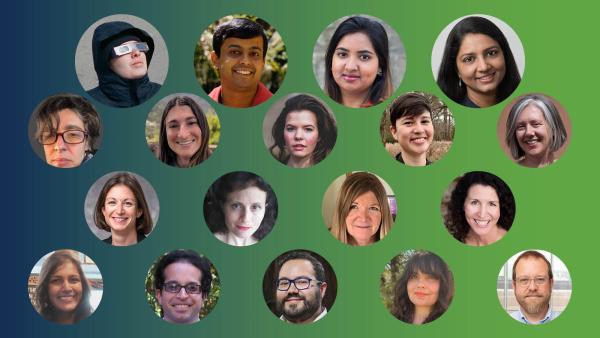 The field of candidates for the 2024-2026 NASW Board of Directors election.
The field of candidates for the 2024-2026 NASW Board of Directors election.
Founded in 1934 with a mission to fight for the free flow of science news, NASW is an organization of ~2,400 professional journalists, authors, editors, producers, public information officers, students and people who write and produce material intended to inform the public about science, health, engineering, and technology. To learn more, visit www.nasw.org and follow NASW on LinkedIn and Bluesky. And join us in celebrating #NASW90th.
Per NASW bylaws, a board vice president is voted in as president-elect. Thus, the vice president of the previous board term is the de facto candidate for president in each election.
The vice president of each term is also asked to serve as chair of the NASW Programs Committee, curating the NASW workshops lineup for the annual ScienceWriters national conference.
In 2021, NASW bylaws were amended to include Affiliate Memberships. This new category was created to support those exploring or returning to science writing careers after a pause. Although Affiliate members hold non-voting status, they can apply for Professional Membership upon meeting that category’s requirements.
